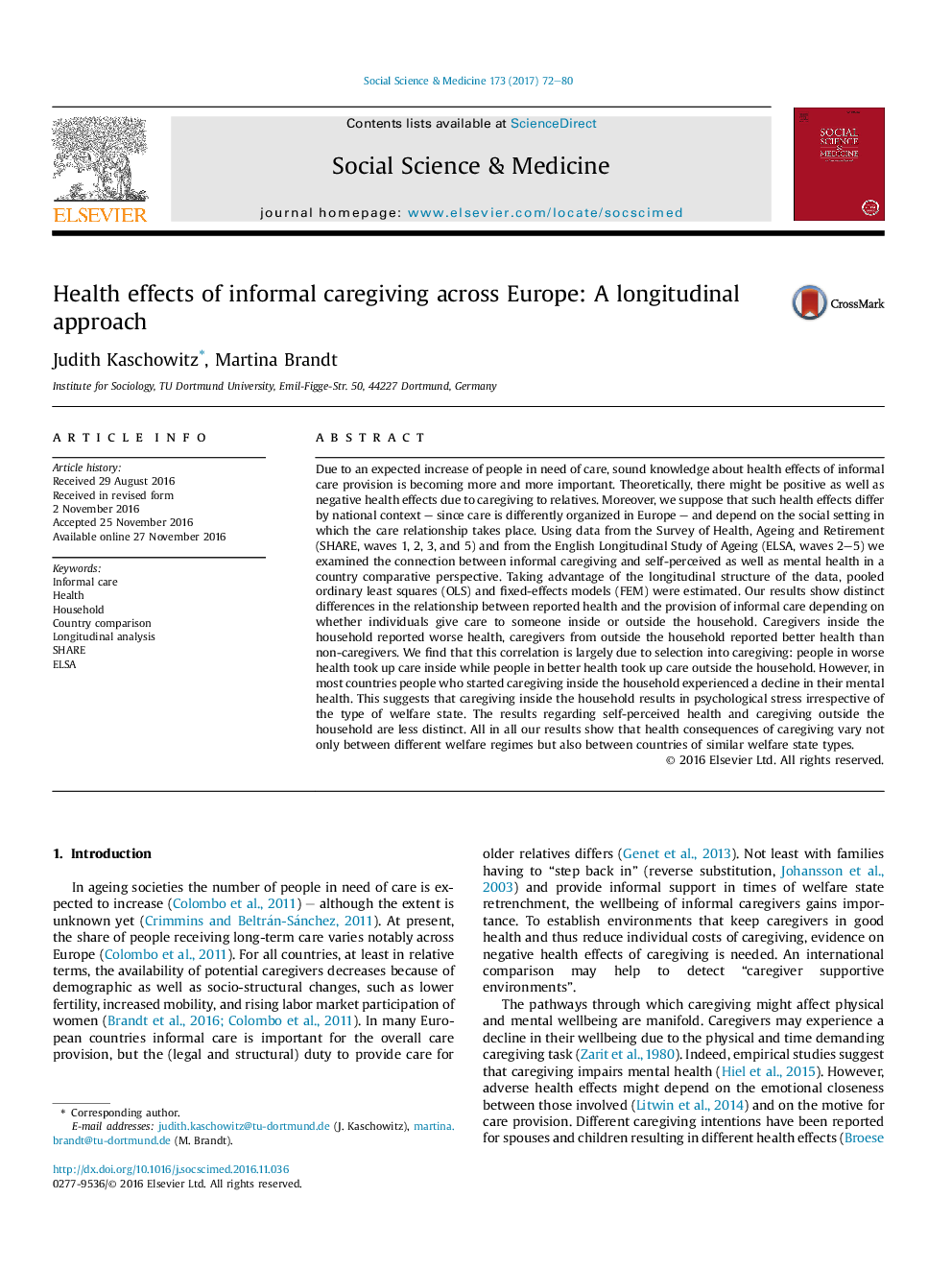| کد مقاله | کد نشریه | سال انتشار | مقاله انگلیسی | نسخه تمام متن |
|---|---|---|---|---|
| 5046771 | 1475996 | 2017 | 9 صفحه PDF | دانلود رایگان |
- We examine informal caregivers' health across Europe using longitudinal methods.
- Different caregiving settings are studied in a country comparison.
- Health consequences differ between caregiving inside and outside the household.
- Health effects of caregiving vary between and within different welfare state types.
Due to an expected increase of people in need of care, sound knowledge about health effects of informal care provision is becoming more and more important. Theoretically, there might be positive as well as negative health effects due to caregiving to relatives. Moreover, we suppose that such health effects differ by national context - since care is differently organized in Europe - and depend on the social setting in which the care relationship takes place. Using data from the Survey of Health, Ageing and Retirement (SHARE, waves 1, 2, 3, and 5) and from the English Longitudinal Study of Ageing (ELSA, waves 2-5) we examined the connection between informal caregiving and self-perceived as well as mental health in a country comparative perspective. Taking advantage of the longitudinal structure of the data, pooled ordinary least squares (OLS) and fixed-effects models (FEM) were estimated. Our results show distinct differences in the relationship between reported health and the provision of informal care depending on whether individuals give care to someone inside or outside the household. Caregivers inside the household reported worse health, caregivers from outside the household reported better health than non-caregivers. We find that this correlation is largely due to selection into caregiving: people in worse health took up care inside while people in better health took up care outside the household. However, in most countries people who started caregiving inside the household experienced a decline in their mental health. This suggests that caregiving inside the household results in psychological stress irrespective of the type of welfare state. The results regarding self-perceived health and caregiving outside the household are less distinct. All in all our results show that health consequences of caregiving vary not only between different welfare regimes but also between countries of similar welfare state types.
Journal: Social Science & Medicine - Volume 173, January 2017, Pages 72-80
